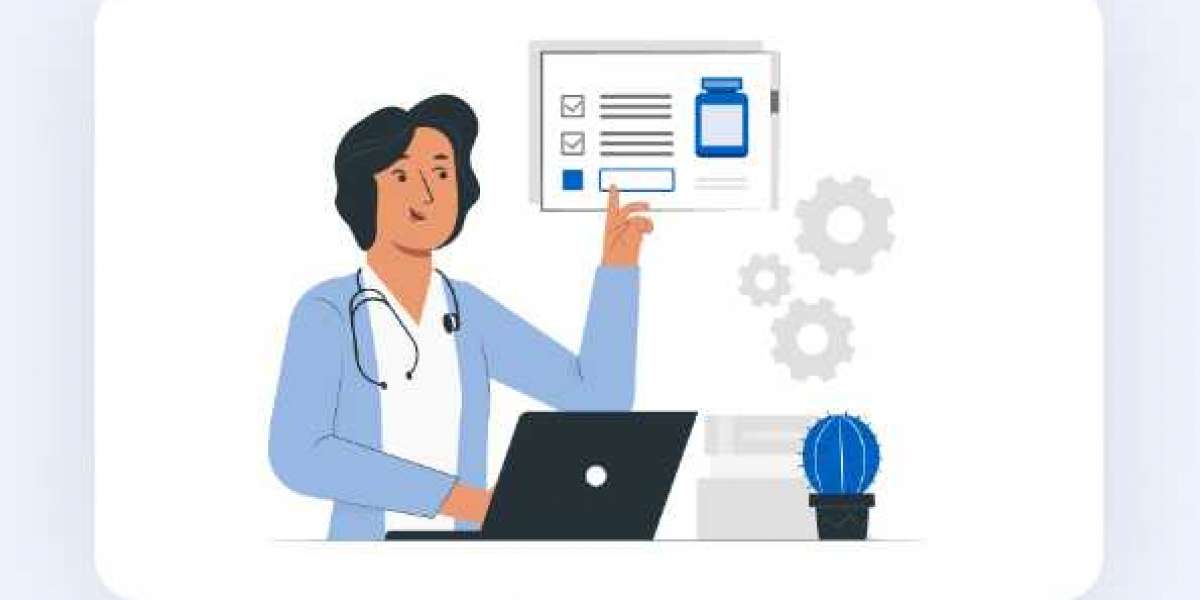In the realm of healthcare, medication adherence is a critical factor that directly influences patient outcomes. According to the World Health Organization, approximately 50% of patients do not take their medications as prescribed, leading to poor health outcomes, increased hospitalizations, and higher healthcare costs. With the advent of artificial intelligence (AI), healthcare providers now have innovative tools at their disposal to enhance medication adherence through personalized reminders and tracking systems. This article explores how AI can be utilized to tailor medication reminders and tracking for patients, improving adherence, enhancing patient engagement, and ultimately leading to better health outcomes.
The Importance of Medication Adherence
Medication adherence refers to the extent to which patients take medications as prescribed by their healthcare providers. Non-adherence can stem from various factors, including:
- Complex Medication Regimens: Patients often struggle to manage multiple medications with different dosing schedules.
- Forgetfulness: Life's distractions can lead patients to forget doses, particularly for chronic conditions requiring long-term treatment.
- Side Effects: Concerns about potential side effects can deter patients from taking their medications.
- Lack of Understanding: Patients may not fully understand their treatment plans or the importance of adhering to them.
Improving medication adherence can significantly reduce the incidence of hospitalizations and complications related to chronic diseases. Thus, developing effective strategies to enhance adherence is a top priority for healthcare providers.
The Role of AI in Healthcare
AI, the simulation of human intelligence in machines, has transformative potential in various healthcare applications. It can analyze vast amounts of data to identify patterns, predict outcomes, and make informed decisions. AI technologies such as machine learning, natural language processing, and data analytics can be harnessed to develop personalized medication reminder systems that cater to individual patient needs.
Key Components of AI-Driven Medication Reminders
Personalized Messaging: AI can analyze patient data, including medication types, dosing schedules, and individual preferences, to create tailored reminder messages. For instance, if a patient prefers text messages over phone calls, the system can prioritize that mode of communication. Additionally, reminders can be customized based on a patient’s daily routine, ensuring they receive notifications at the most appropriate times.
Behavioral Insights: Machine learning algorithms can track patient behavior patterns and identify factors influencing adherence. For example, if a patient frequently forgets their morning medication, the system can adjust reminders accordingly, perhaps by sending multiple alerts before and after the scheduled time. Furthermore, the system can utilize data from wearable devices to understand lifestyle patterns and tailor reminders based on physical activity levels or sleep quality.
Integration with Health Records: AI-driven systems can integrate with electronic health records (EHRs) to access comprehensive patient histories. This integration allows for real-time updates on medication changes, allergies, and other critical factors that influence adherence. For instance, if a patient is prescribed a new medication tracking app development, the reminder system can automatically adjust to include this new regimen, ensuring the patient is informed and compliant.
Engagement and Education: AI can enhance patient engagement by providing educational content alongside reminders. For instance, if a patient receives a reminder to take a blood pressure medication, the system can also deliver information about the importance of the medication and potential side effects. This approach helps patients understand the rationale behind their treatment, fostering a sense of ownership over their health.
Feedback Mechanisms: Incorporating feedback loops into reminder systems allows patients to report their medication adherence status easily. AI can analyze this feedback to assess patterns of adherence and non-adherence, enabling healthcare providers to intervene when necessary. For instance, if a patient consistently reports missing doses, healthcare providers can follow up with targeted support or counseling.
Enhancing Patient Experience with AI-Driven Systems
The integration of AI into medication reminder systems not only improves adherence but also enhances the overall patient experience. Here are several ways in which AI-driven systems can make medication management more user-friendly:
1. Multimodal Communication
Patients have diverse preferences when it comes to communication. Some may prefer text messages, while others might favor emails or app notifications. AI-driven systems can offer multiple communication channels, allowing patients to choose their preferred method of receiving reminders. This flexibility increases the likelihood of adherence, as patients are more inclined to respond to reminders that suit their preferences.
2. Smart Scheduling
AI algorithms can optimize reminder scheduling based on patient data and behavioral patterns. For example, if a patient consistently takes their medications at a specific time, the system can learn this behavior and adjust reminders accordingly. Additionally, AI can account for external factors, such as upcoming appointments or holidays, ensuring that reminders are appropriately timed.
3. Gamification and Incentives
To further engage patients, AI-driven systems can incorporate gamification elements, such as rewards for consistent adherence. For instance, patients can earn points for taking medications as prescribed, which can be redeemed for discounts on health-related products or services. This approach transforms medication adherence into a more enjoyable and rewarding experience, motivating patients to stay on track with their treatment plans.
4. Social Support
AI-driven systems can facilitate social support by allowing patients to share their adherence goals with family members or friends. By creating a community around medication management, patients can receive encouragement and accountability from their social circles. For instance, a patient can opt to send adherence updates to a designated family member, who can provide reminders and support.
Case Studies: Successful Implementation of AI in Medication Management
Several healthcare organizations have successfully implemented AI-driven medication reminder systems, demonstrating the effectiveness of this approach in improving adherence.
Case Study 1: Medisafe
Medisafe is a mobile app that utilizes AI to help patients manage their medications. The app provides personalized reminders based on individual medication schedules and preferences. It also incorporates features like medication interaction alerts and progress tracking. Users can receive reminders via push notifications, text messages, or emails, ensuring they stay on track with their regimens. According to Medisafe, users who engage with the app experience significantly higher adherence rates compared to those who do not.
Case Study 2: Omnicare
Omnicare, a subsidiary of CVS Health, leverages AI to enhance medication adherence for patients in long-term care facilities. Their AI-driven system analyzes patient data to create personalized medication plans and reminders. The system also allows healthcare providers to monitor adherence in real time, enabling timely interventions when necessary. Omnicare reported a marked decrease in hospitalizations due to improved medication adherence among its patients.
Case Study 3: MyTherapy
MyTherapy is another AI-based medication management app that focuses on adherence and tracking. The app allows patients to set up personalized reminders for medications, supplements, and lifestyle changes. It also includes a health journal feature, where patients can track their symptoms and medication effectiveness. The AI component analyzes this data to provide insights into patient behavior, enabling healthcare providers to tailor their interventions effectively.
Challenges and Considerations
While AI-driven medication reminder systems offer numerous benefits, several challenges must be addressed to ensure successful implementation:
1. Data Privacy and Security
The use of AI in healthcare raises concerns about data privacy and security. Patient data must be handled in compliance with regulations such as the Health Insurance Portability and Accountability Act (HIPAA). Ensuring that AI systems adhere to stringent security protocols is essential to protect sensitive patient information.
2. Patient Engagement
Not all patients may be comfortable with technology, and some may resist using AI-driven systems. Healthcare providers must consider the digital literacy of their patient population and offer support to those who may struggle with technology.
3. Integration with Existing Systems
Implementing AI-driven medication reminder systems requires integration with existing EHRs and healthcare workflows. This integration can be complex and may require substantial investment in technology and training.
4. Continuous Monitoring and Improvement
AI systems must be continuously monitored and refined to ensure optimal performance. Regularly updating algorithms based on new data and feedback will enhance the effectiveness of medication reminder systems.
The Future of AI in Medication Management
The potential for AI in personalizing medication reminders and tracking is immense. As technology continues to advance, we can expect to see more sophisticated AI-driven solutions that enhance patient adherence and engagement. Some promising trends include:
1. Increased Use of Wearable Technology
Wearable devices equipped with AI algorithms can monitor patient behavior in real time and provide reminders based on individual activity levels. For example, a smartwatch could notify a patient to take their medication if it detects that they are at home and not moving around too much.
2. Advanced Predictive Analytics
As AI technologies evolve, predictive analytics will become more refined, allowing for even greater personalization of medication reminders. These systems could anticipate potential adherence issues based on a patient’s history and proactively offer support.
3. Integration with Telehealth Services
The rise of telehealth presents an opportunity to integrate AI-driven medication reminders into virtual consultations. Healthcare providers can use data from reminder systems to discuss adherence during telehealth visits, enabling more personalized and proactive care.
4. Community and Social Support Integration
Future AI-driven systems may incorporate community engagement features, allowing patients to connect with others facing similar health challenges. This social aspect can foster support networks, further enhancing adherence.
Conclusion
AI has the potential to revolutionize medication management by personalizing reminders and tracking systems for patients. By leveraging advanced technologies, healthcare providers can enhance medication adherence, improve patient engagement, and ultimately lead to better health outcomes. While challenges remain, the future of AI in medication management is promising, with numerous opportunities for innovation and improvement. As we continue to explore the intersection of technology and healthcare, AI will play an increasingly vital role in supporting patients on their journey to better health.







